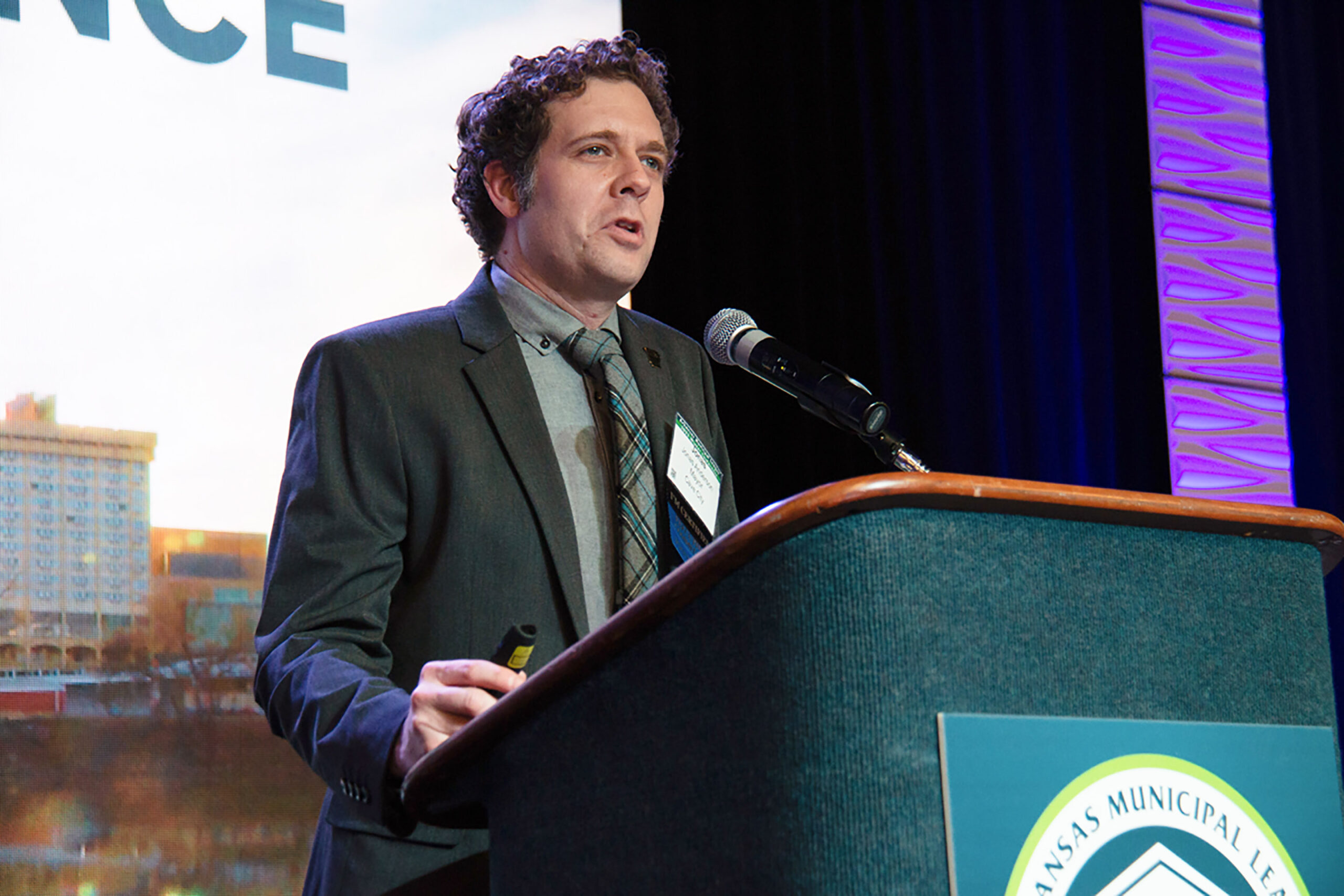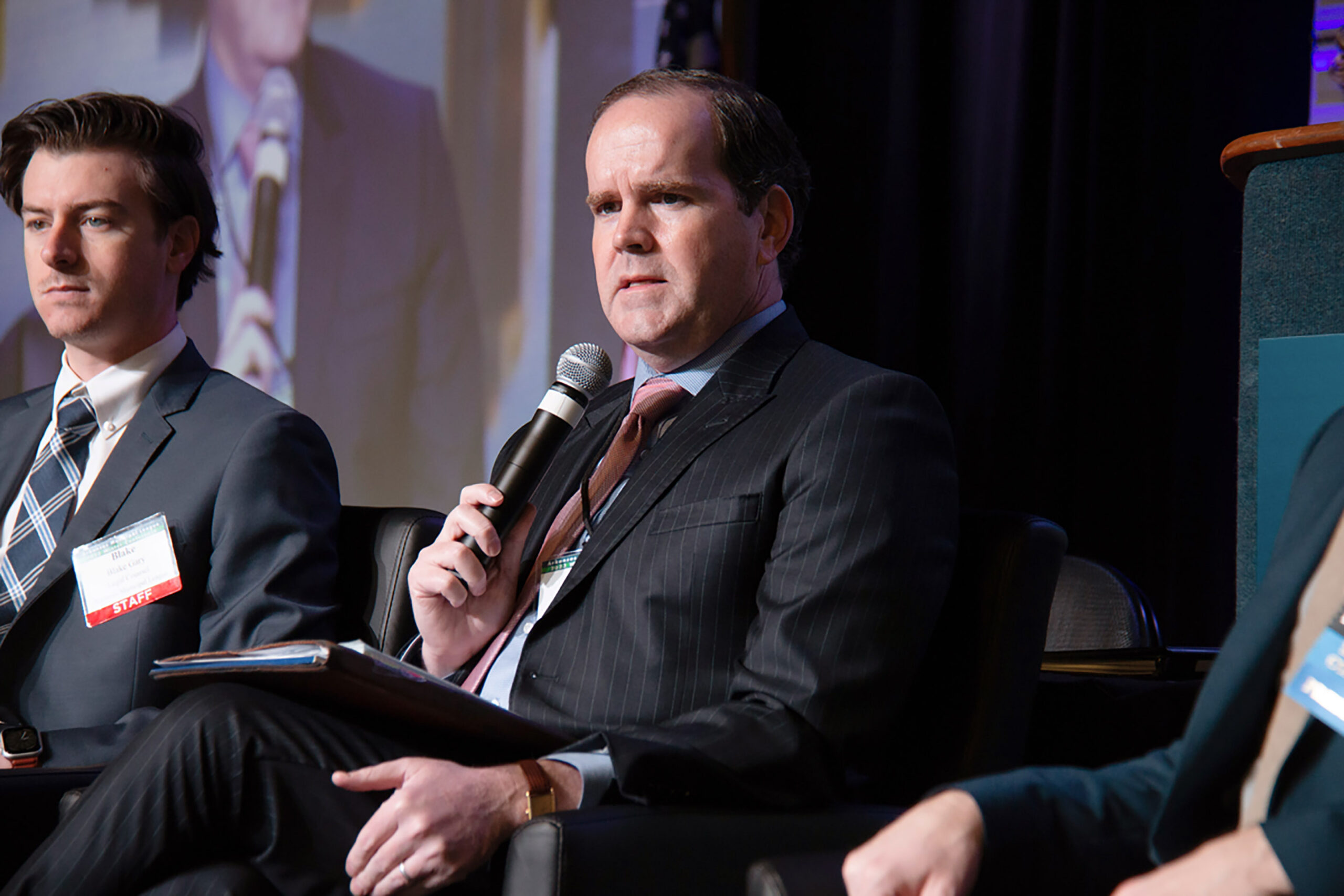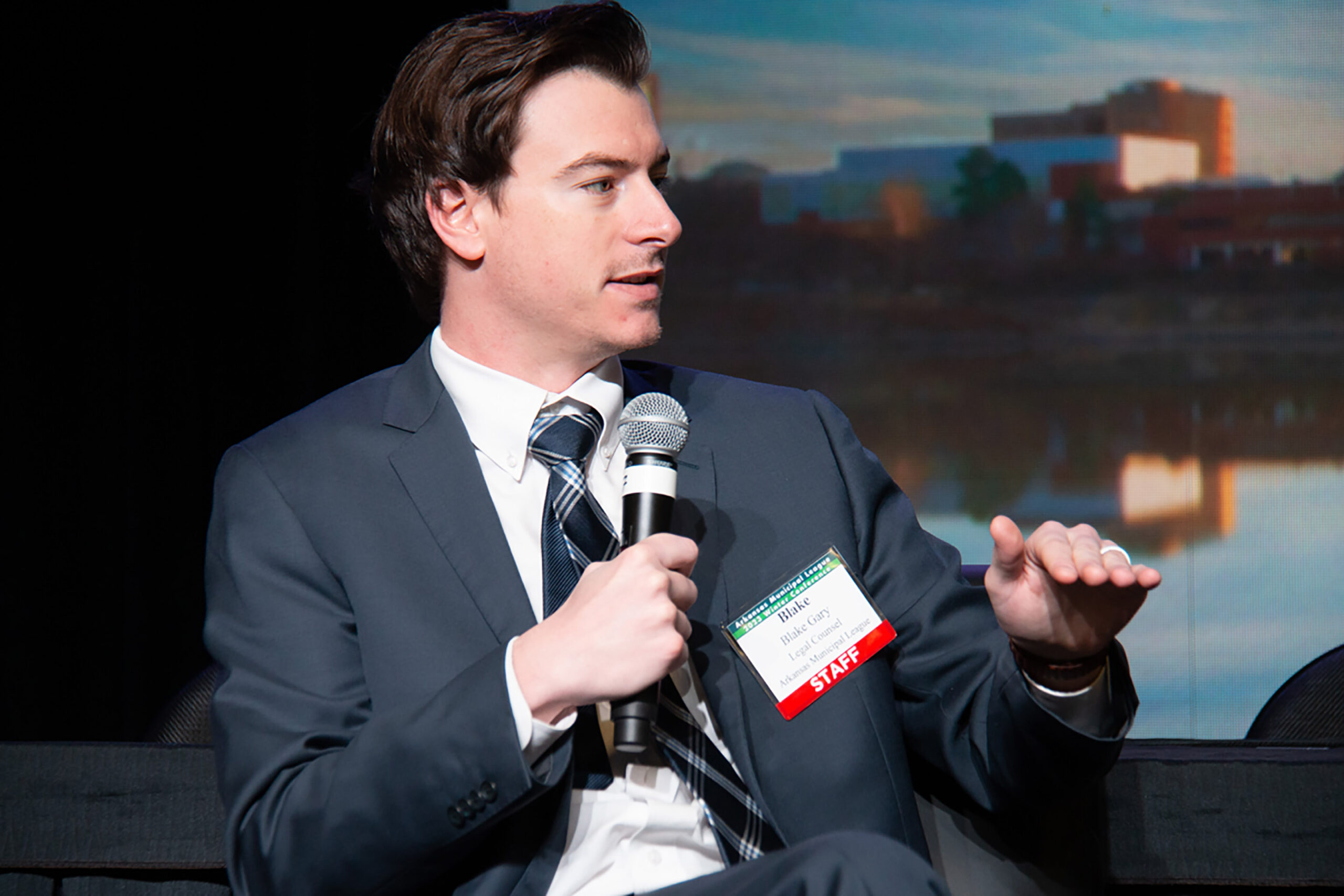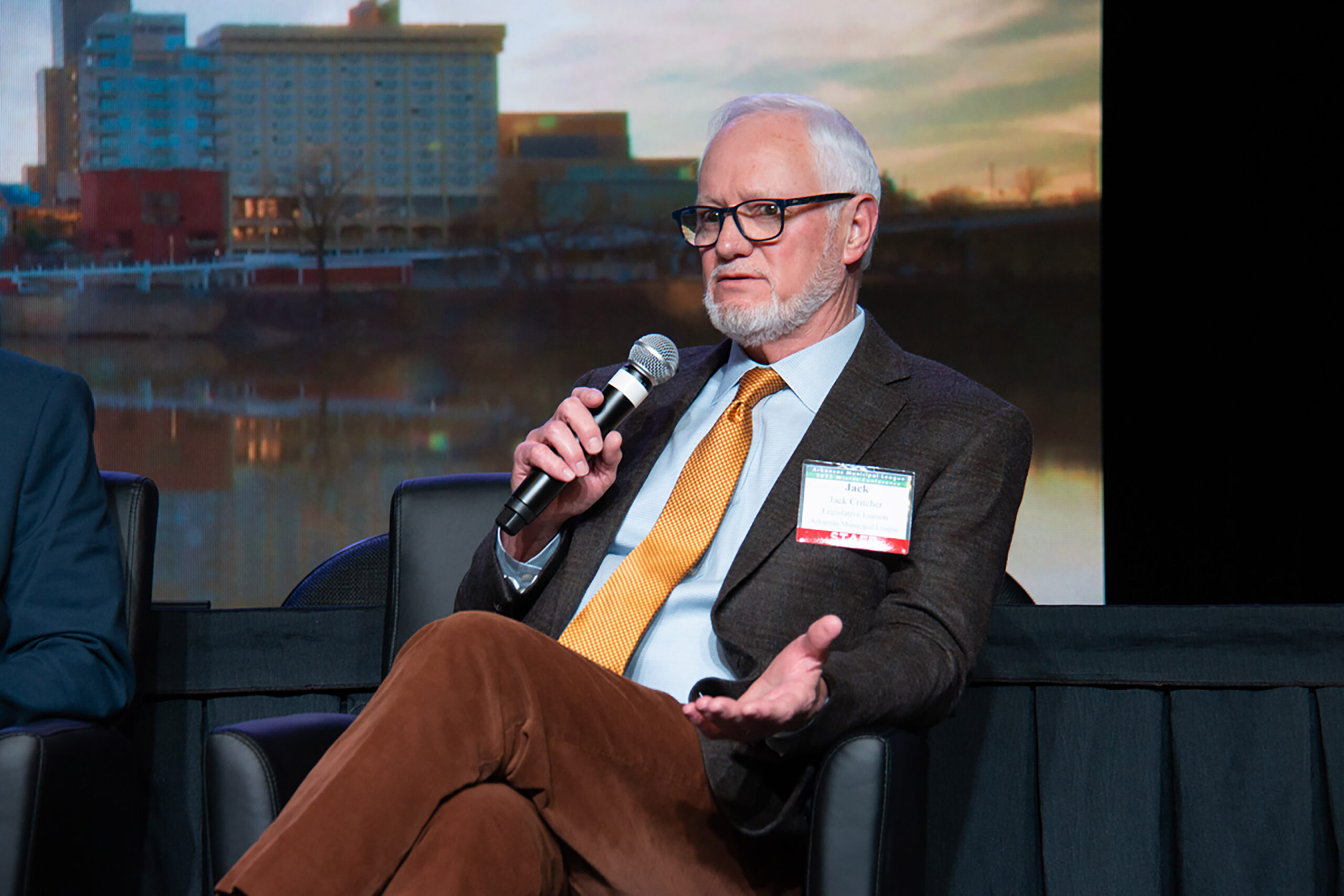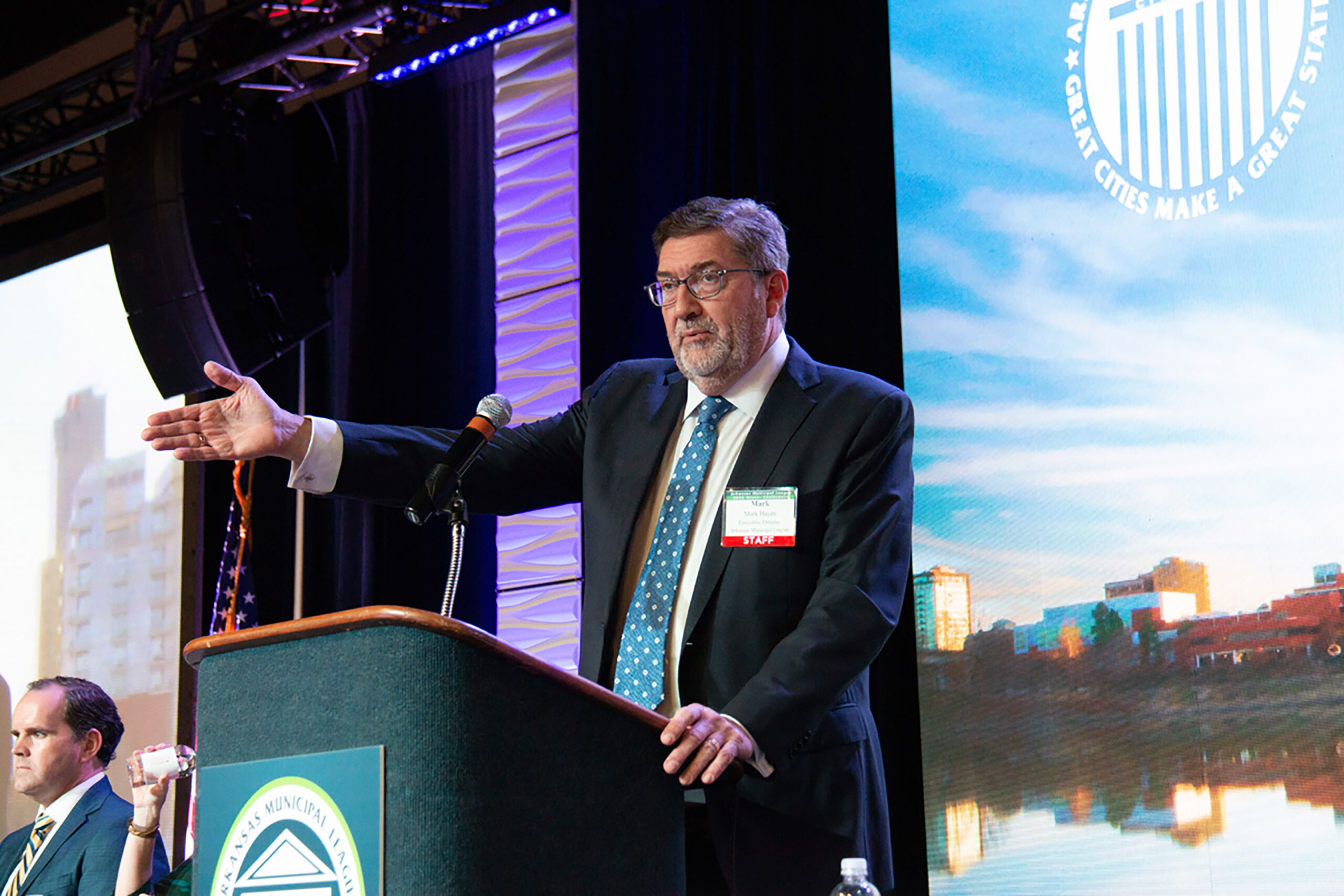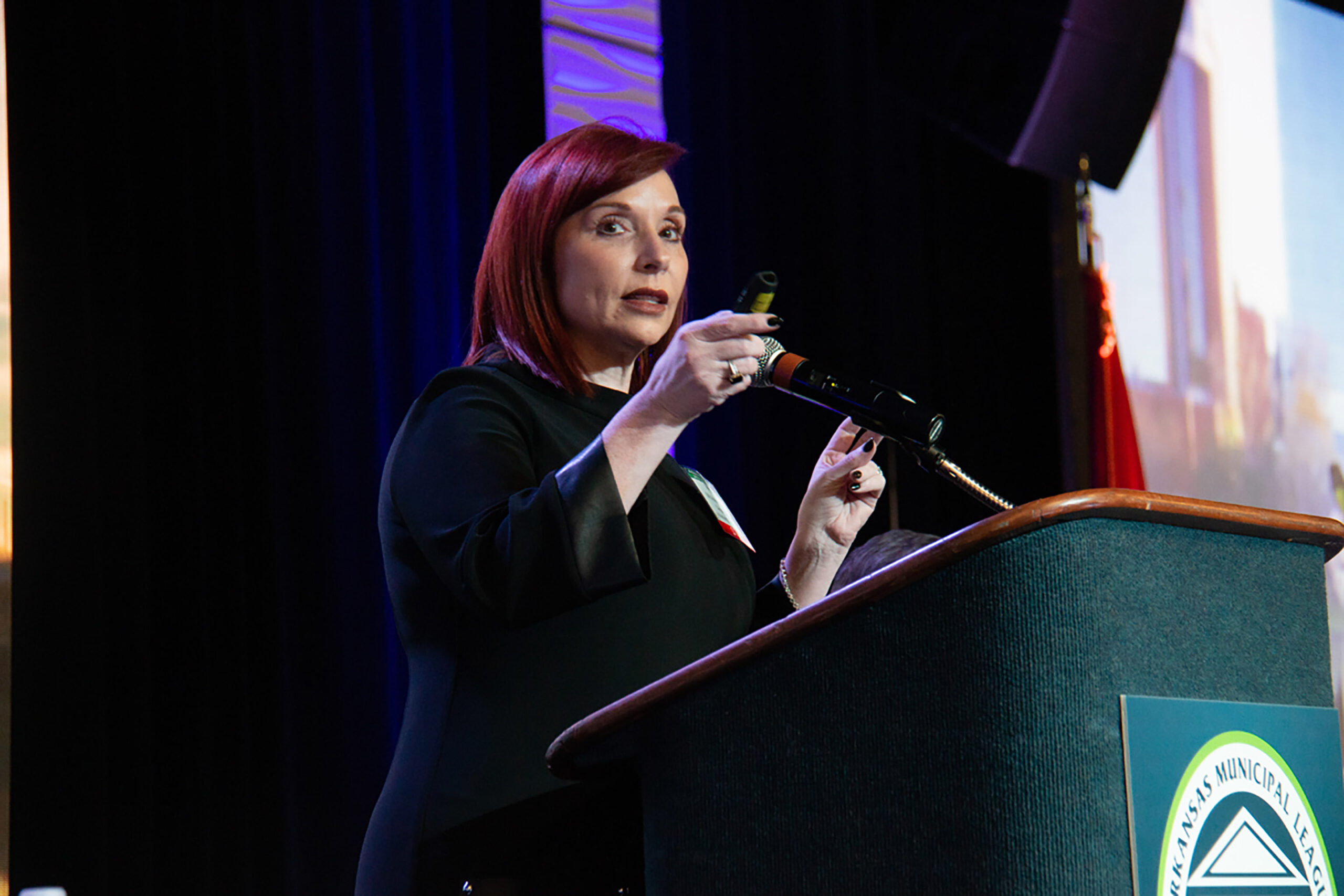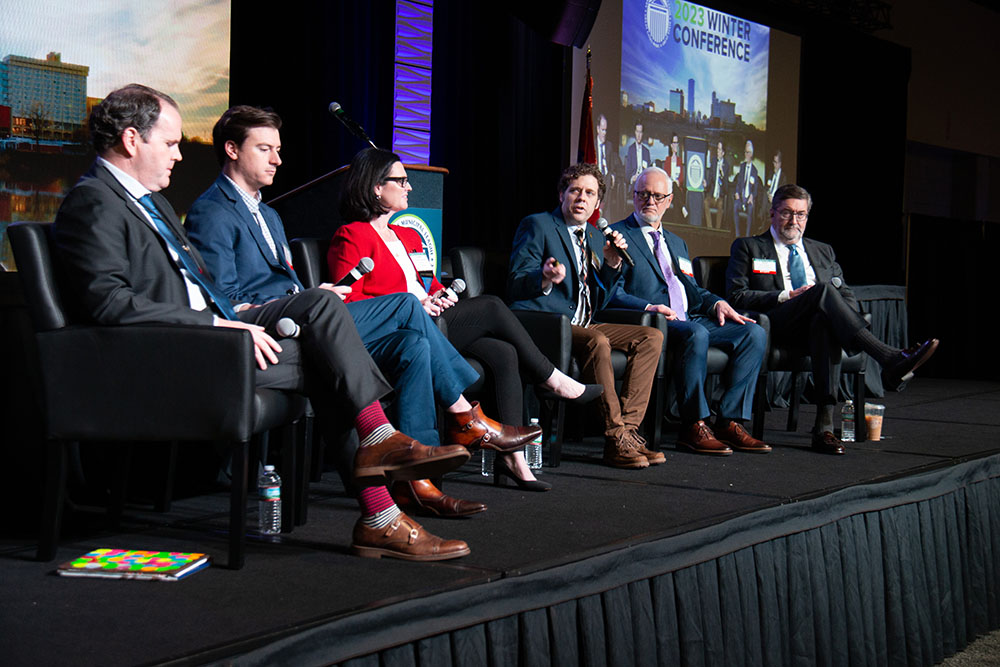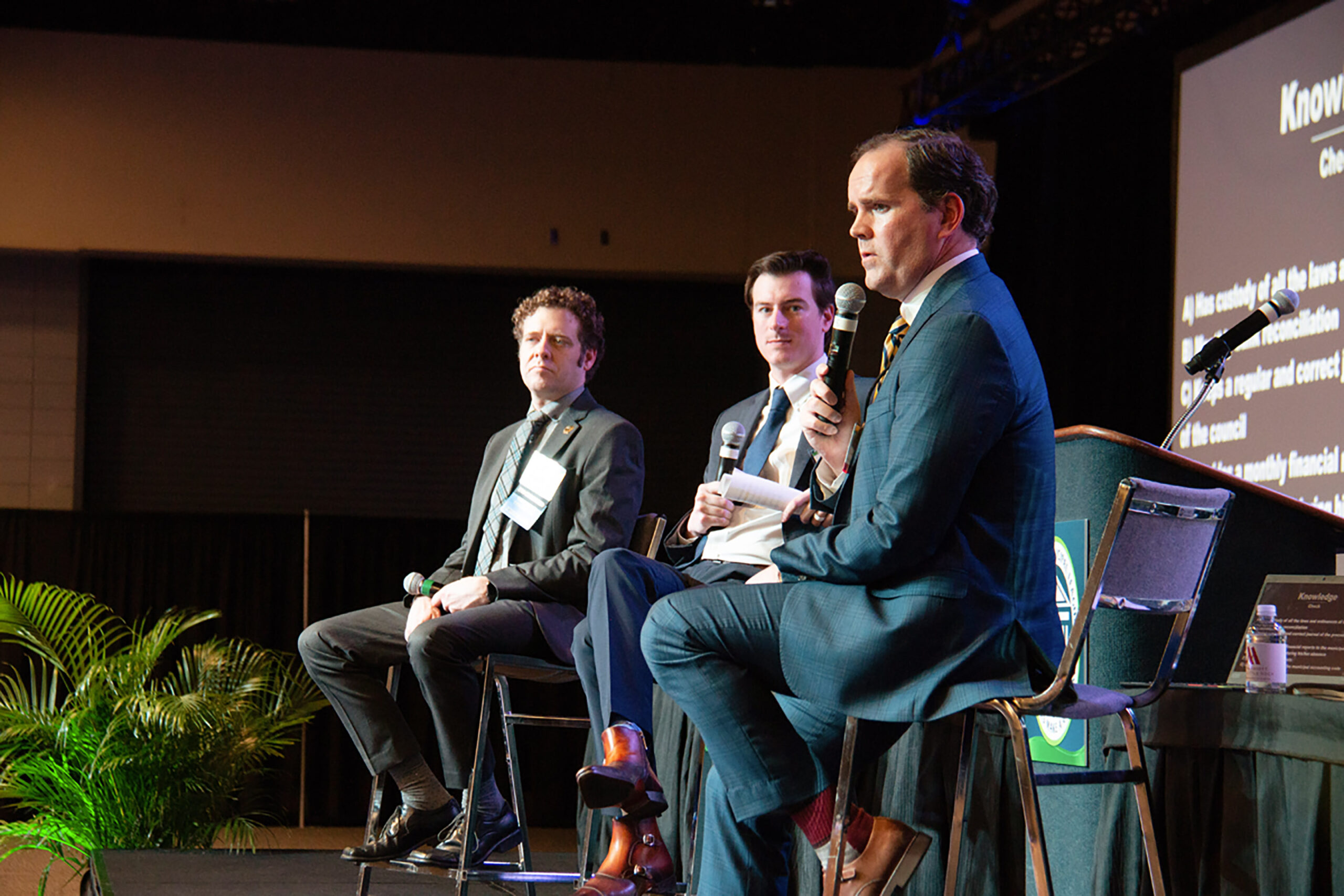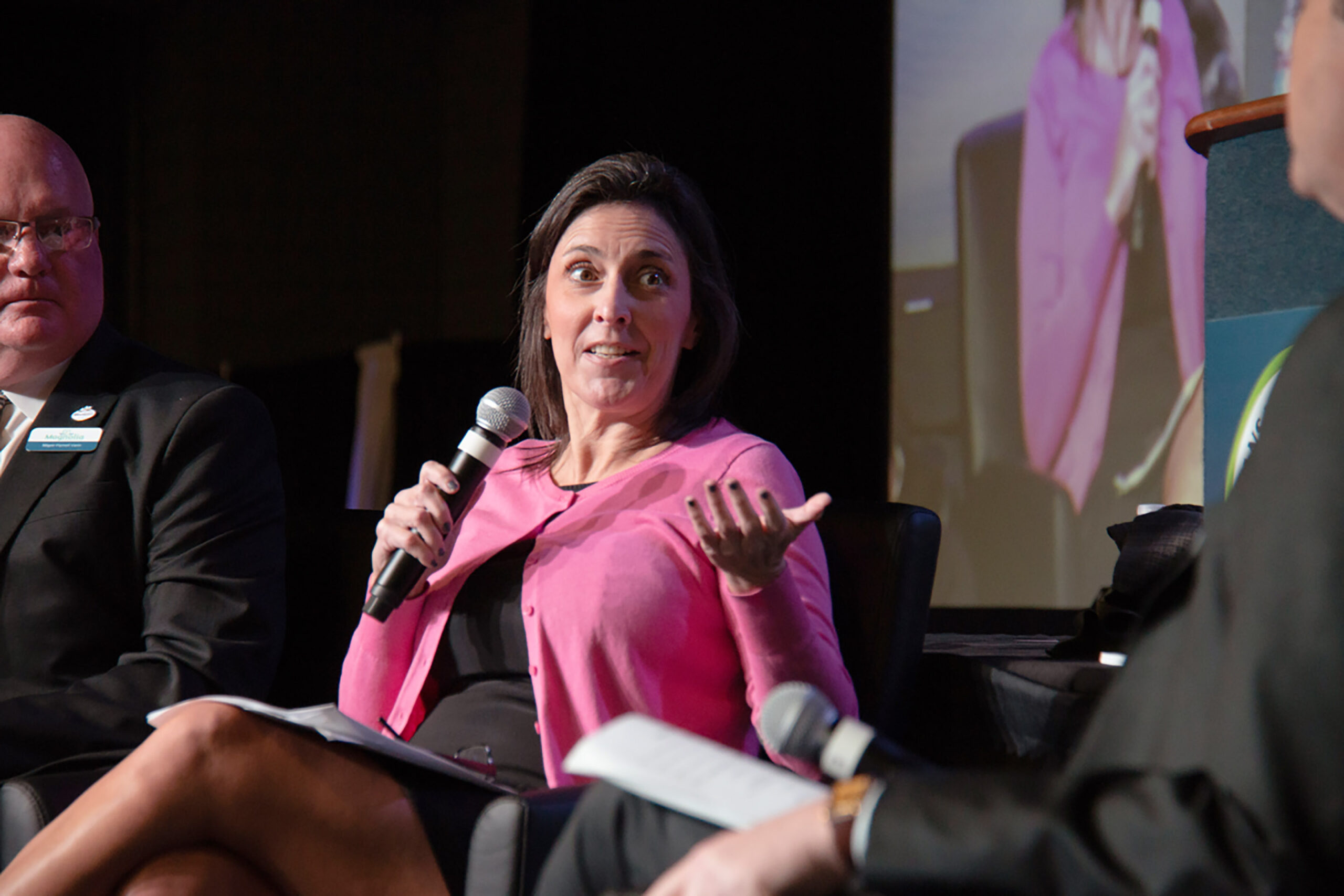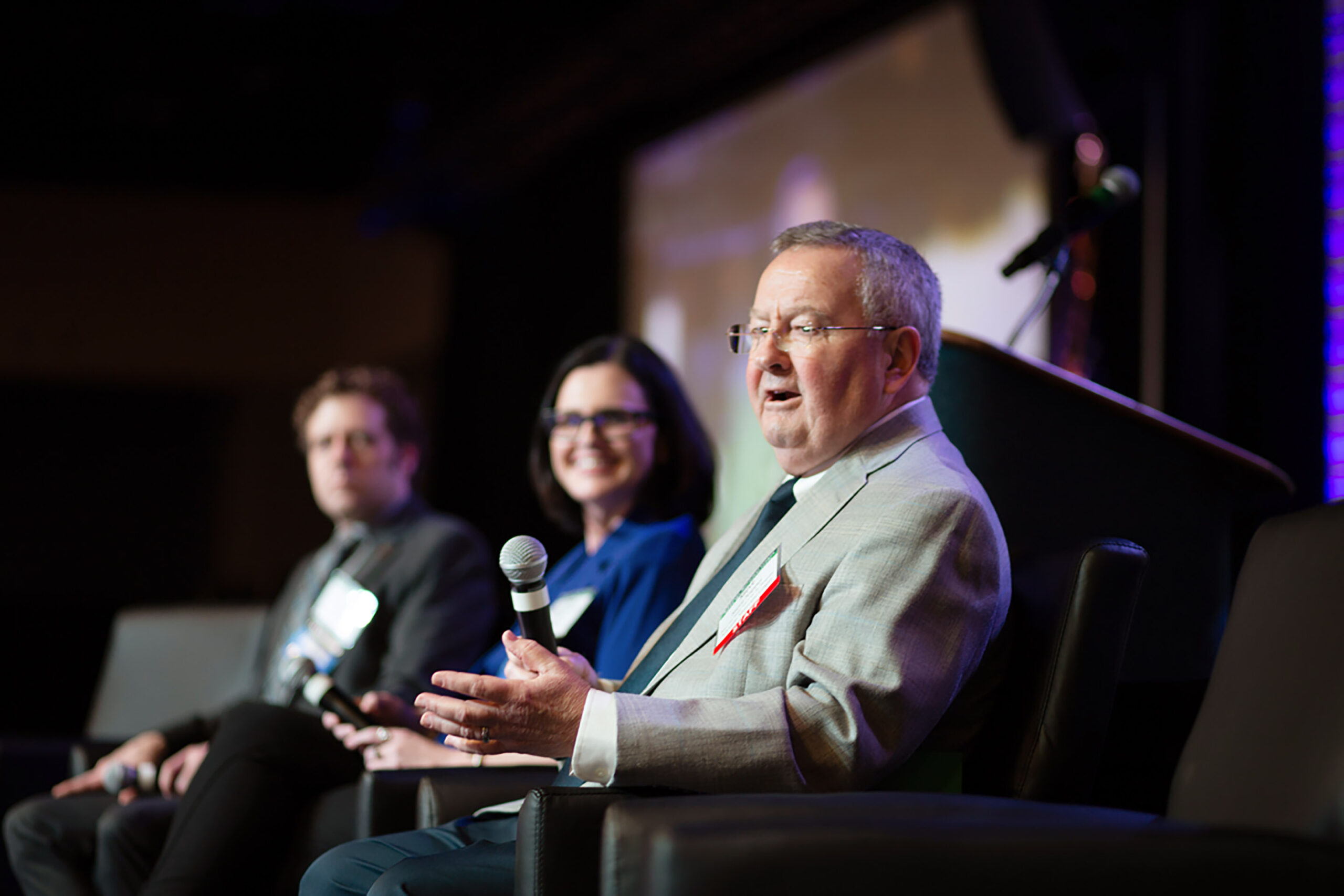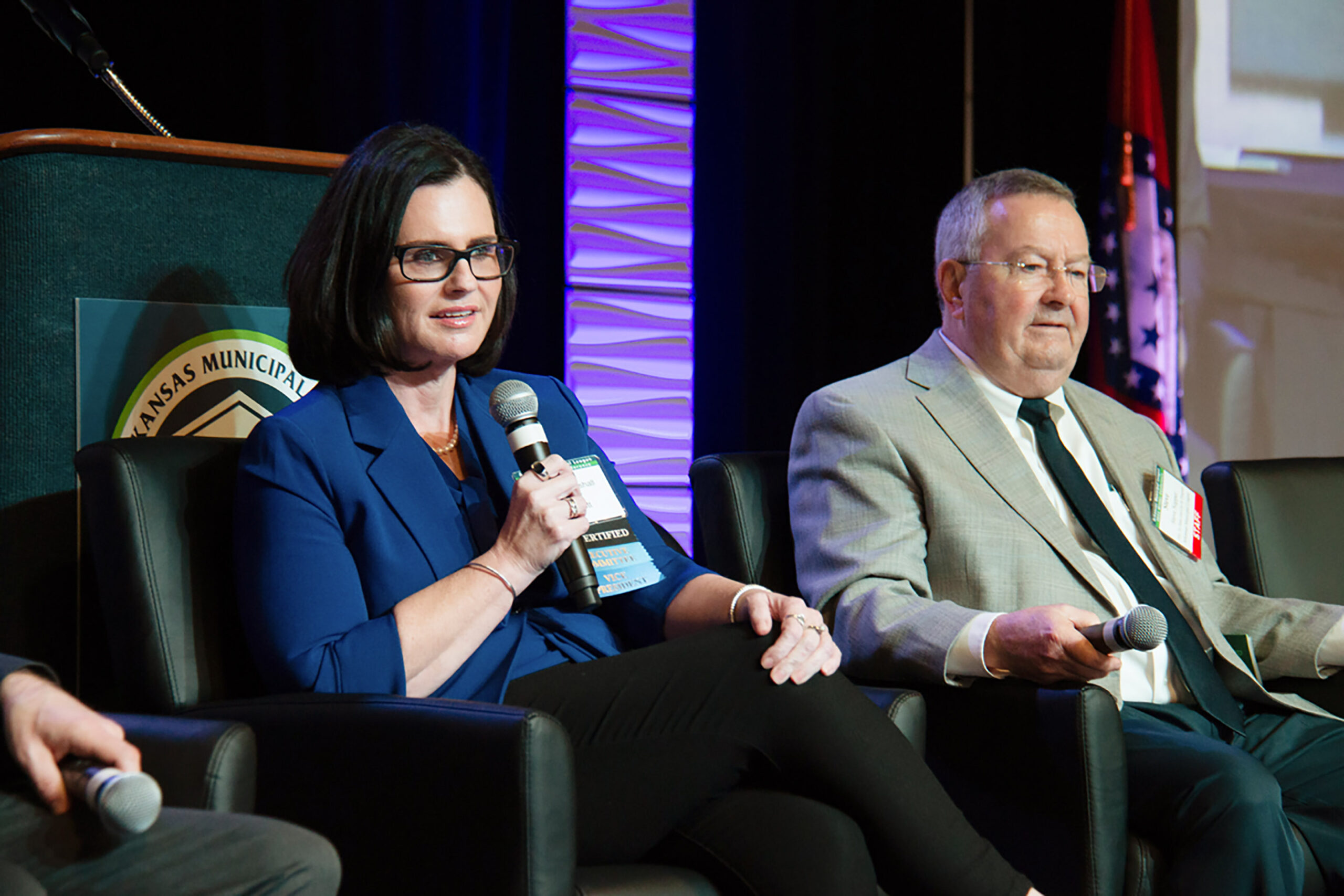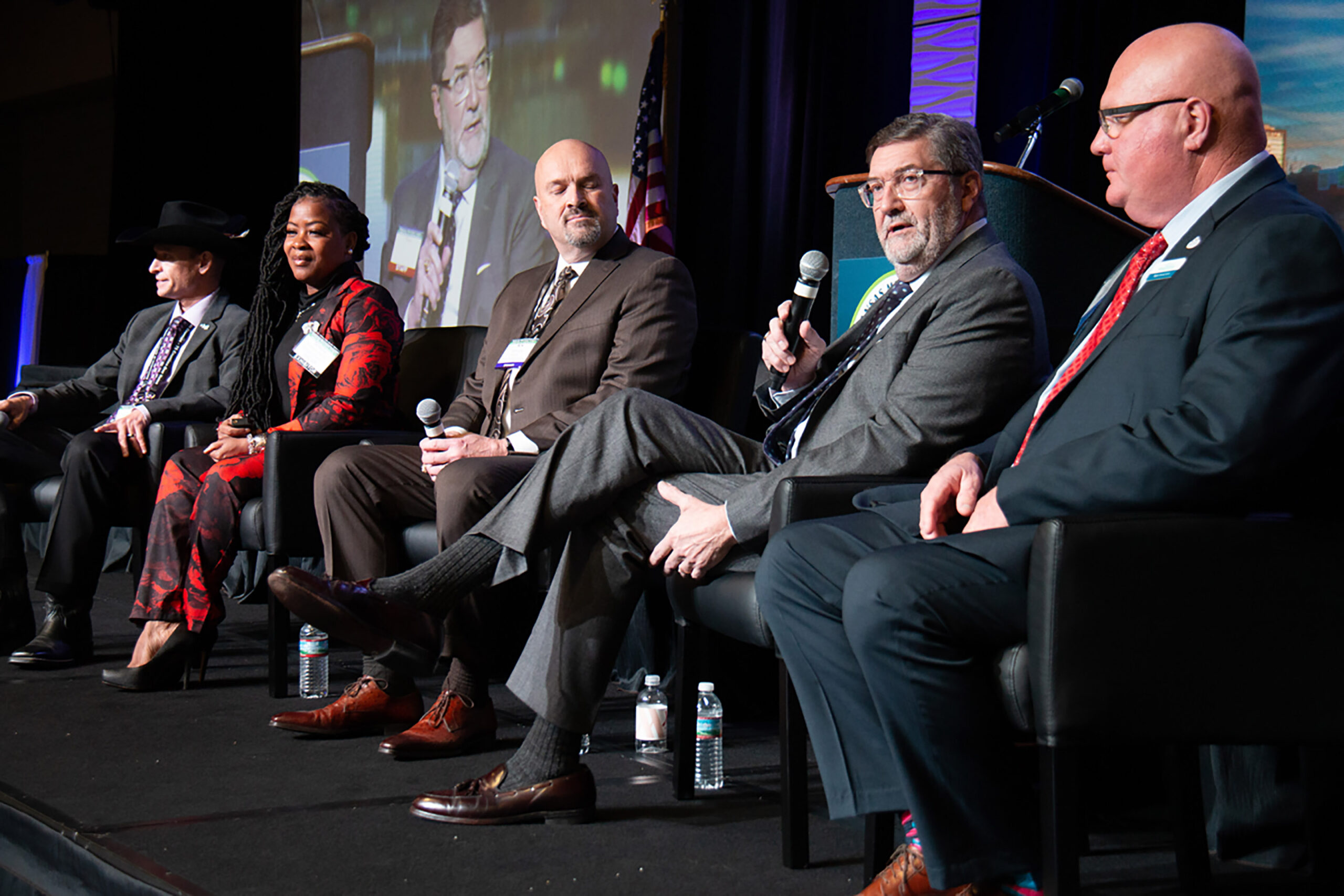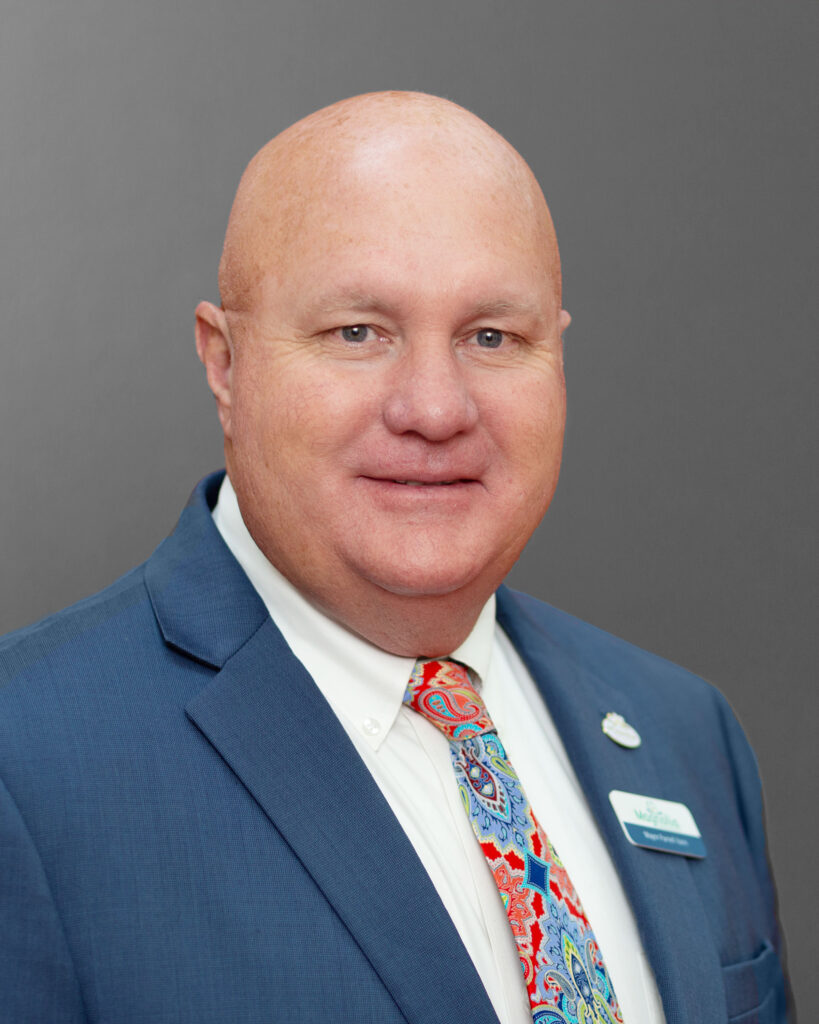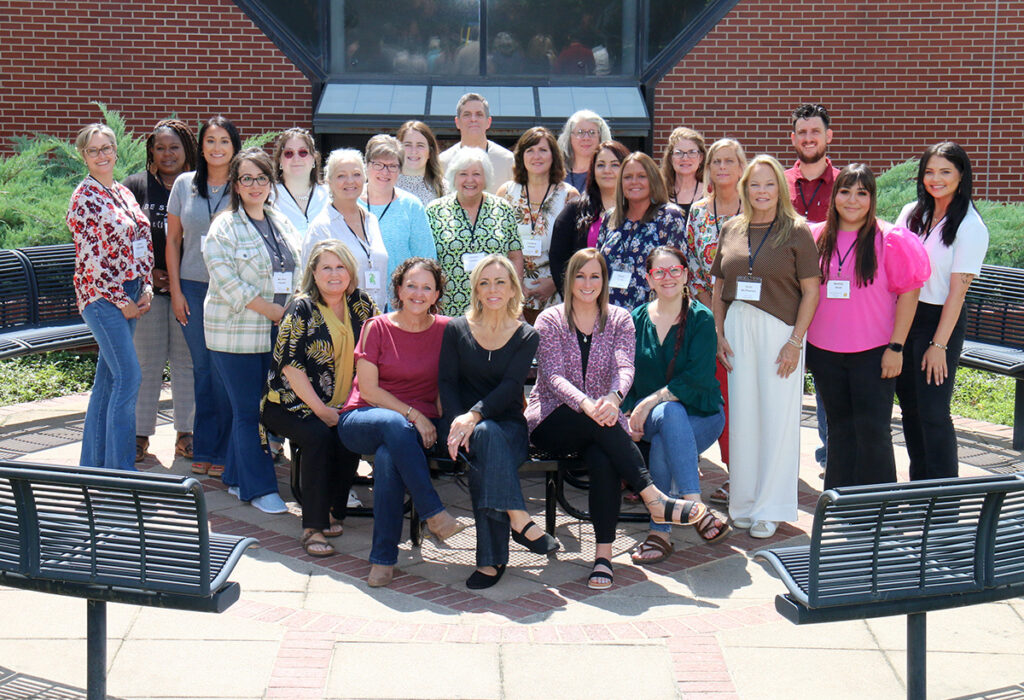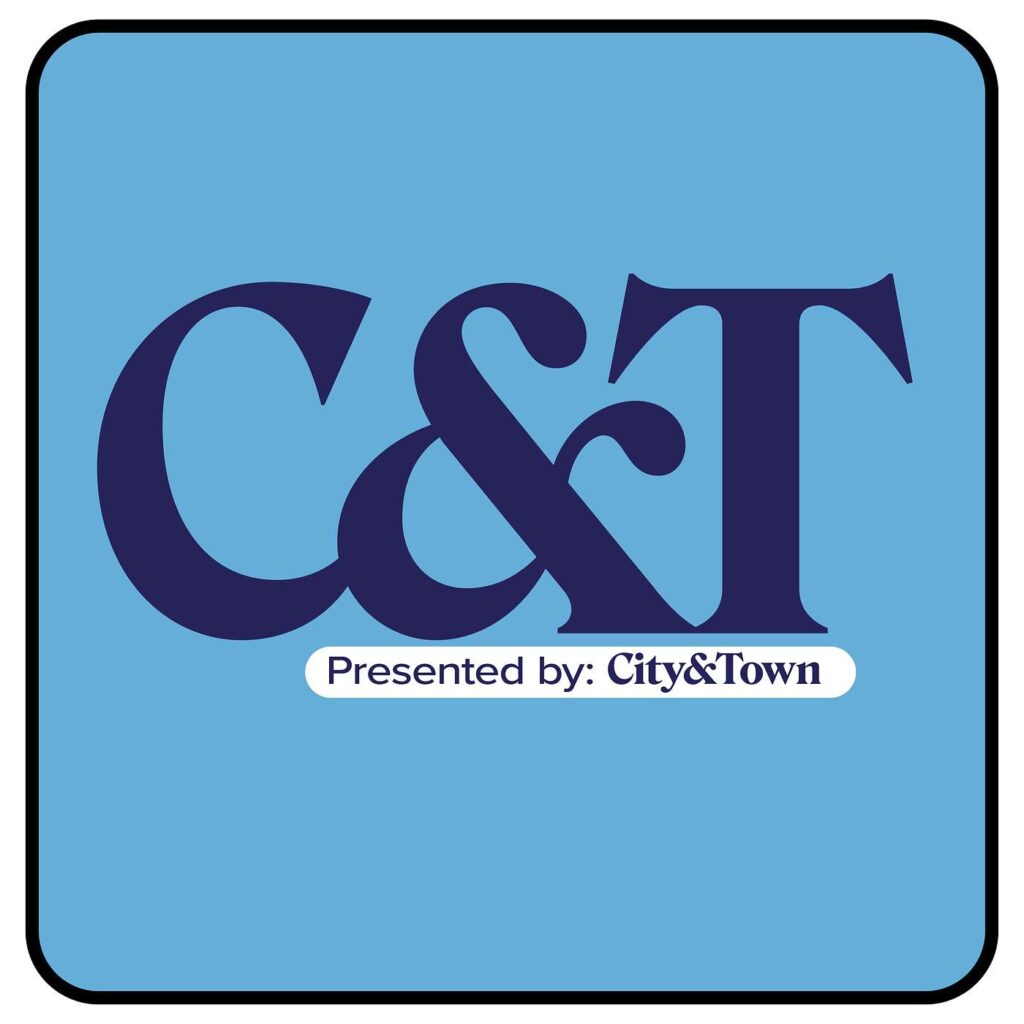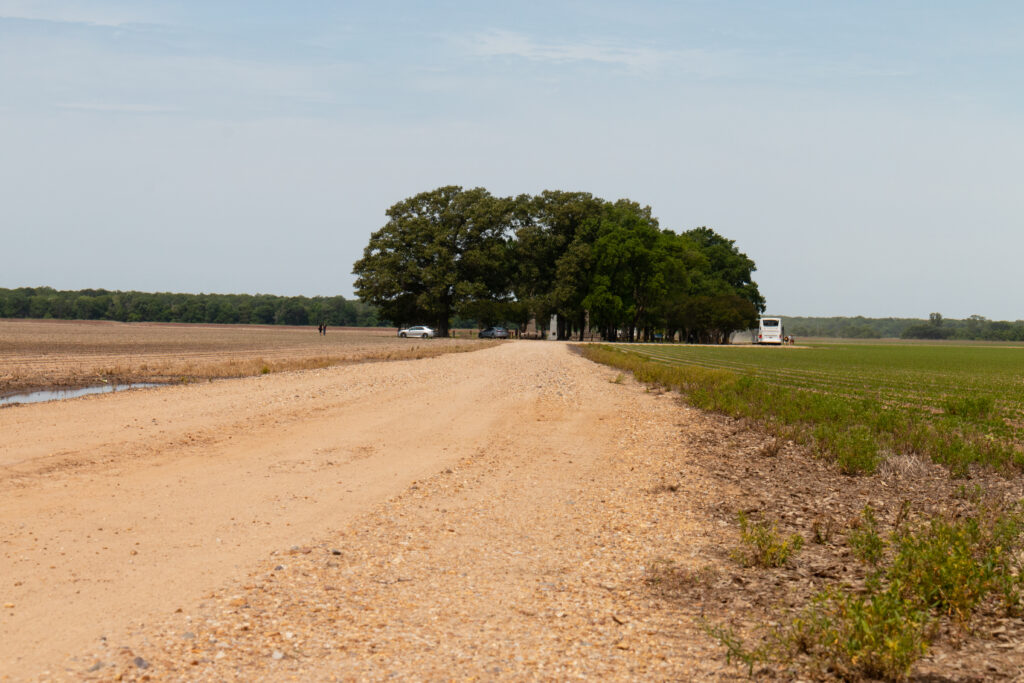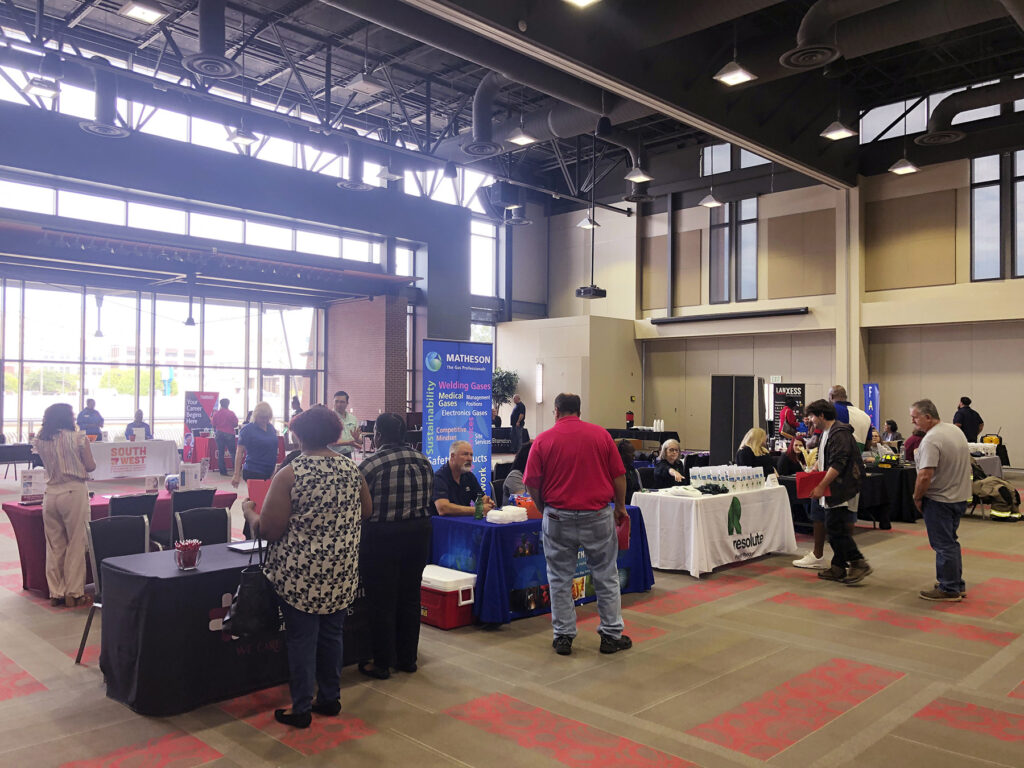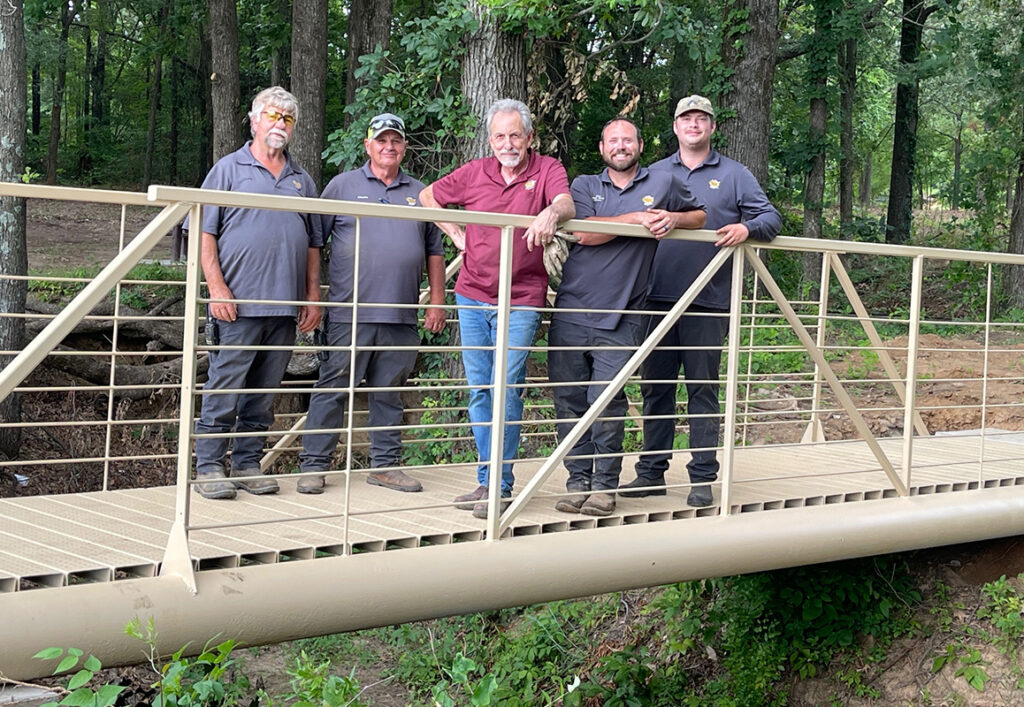Elected officials and key personnel from cities and towns across Arkansas gathered in Little Rock or joined their colleagues online for the Arkansas Municipal League’s 2023 Winter Conference, held January 11-13 at the Little Rock Marriott and Statehouse Convention Center. Attendance was strong, with 803 participating in person and 190 following the proceedings virtually. Newly elected officials and first-time officeholders were well represented, with 172 new mayors, council members, city clerks and other officials taking part.
The conference covered an array of topics important to cities and towns, including a series of sessions dedicated to “City Government 101,” the popular League curriculum that covers the essentials of local government, including the statutory roles of elected officials, an overview of Arkansas’ Freedom of Information Act and an introduction to the many services and programs offered by the League to assist municipalities.
With the 94th General Assembly of the Arkansas Legislature getting underway in January, the conference also featured several sessions on bills likely to appear during the session that would affect cities and towns and how local officials can best stay engaged with the legislative process.
Education is the focus of each annual winter conference, and this year’s event included five hours of core certification credit and three hours of continuing education credit as part of the League’s voluntary certification program for municipal officials and personnel. Municipal leaders who have obtained or maintained certification status over the past year, including the inaugural class of Level 2 certification, were recognized during Wednesday’s opening night banquet.

